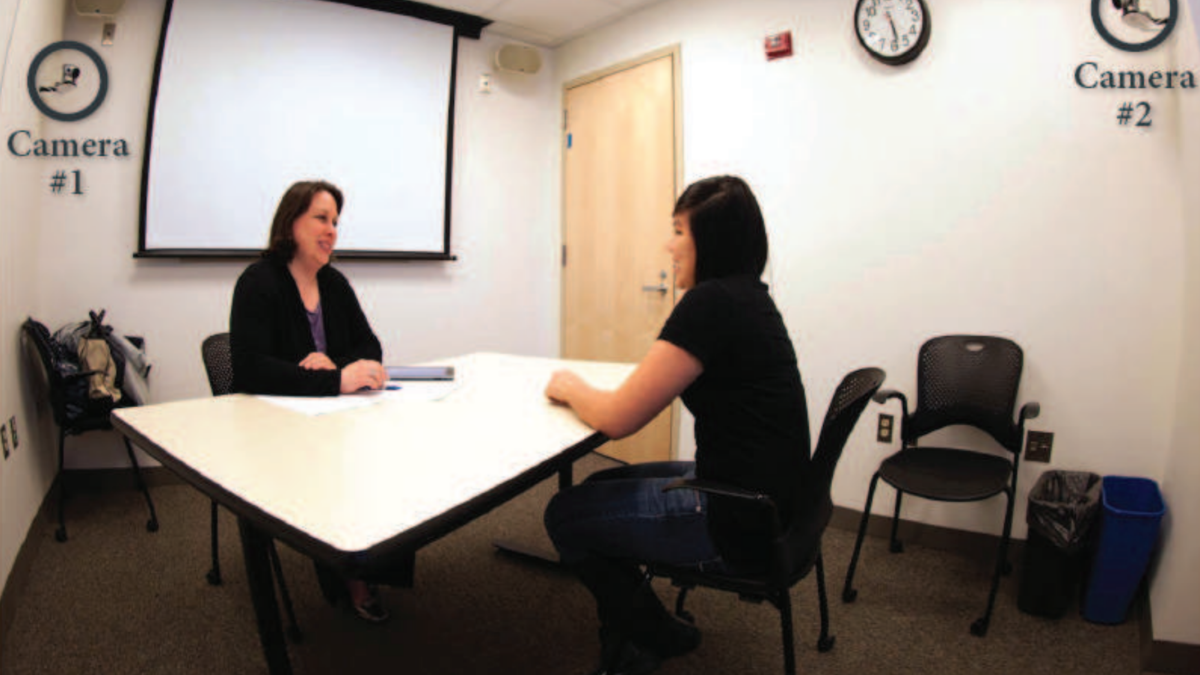Automated Prediction of Job Interview Performances
Ever wondered why you have been rejected from a job despite being a qualified candidate? What went wrong? We provide a computational framework to quantify human behavior in the context of job interviews. We build a model by analyzing 138 recorded interview videos (total duration of 10.5 hours) of 69 internship-seeking students from Massachusetts Institute of Technology (MIT) as they spoke with professional career counselors. Our automated analysis includes facial expressions (e.g., smiles, head gestures), language (e.g., word counts, topic modeling), and prosodic information (e.g., pitch, intonation, pauses) of the interviewees. We derive the ground truth labels by averaging over the ratings of 9 independent judges. Our framework automatically predicts the ratings for interview traits such as excitement, friendliness, and engagement with correlation coefficients of 0.73 or higher, and demonstrates that prosody is more important than language and facial expressions.
According to our framework, it is recommended to speak more fluently, use less filler words, speak as “we” (vs. “I”), use more unique words, and smile more.
We also performed gender analysis, and showed that certain combinations of features are correlated with higher ratings only in males, such as the combined increase of speech rate and vocal pitch variation. Our results suggest that exhibiting certain negative emotions correlates with higher ratings for males but not for females, illustrating the impact of gender in generating effective feedback on public speaking.
MIT Interview Dataset
We release the MIT Interview Dataset containing the audio-visual recordings of 138 mock job interviews, conducted by professional career counselors with 69 undergraduate MIT students. In addition to the videos, we release the Amazon Mechanical Turk ratings for each of the videos, the final ground truth ratings, and the processed feature values. Due to the sensitive nature of the dataset, anyone accessing the dataset must agree to the terms and conditions of using the dataset. Please fill out the following form to request our dataset: https://goo.gl/forms/xF4DEsg9RIsto6nu1″
Please use an academic email (that ends with .edu or equivalent) when you sign up to obtain the dataset. We can not release the dataset when a request comes from gmail, yahoo etc.
Related Publications
I. Naim, I. Tanveer, D. Gildea, M. E. Hoque, Automated Prediction of Job Interview Performance: The Role of What You Say and How You Say It, Automated Face and Gesture Recognition (FG), May 2015.
I. Naim, I. Tanveer, D. Gildea, M. E. Hoque, Automated Analysis and Prediction of Job Interview Performance, IEEE Transactions on Affective Computing, 2016
, Analyzing the Impact of Gender on the Automation of Feedback for Public Speaking, In 8th Int. Workshop on Human Behavior Understanding (HBU) in conjunction with IEEE International Conference on Automated Face and Gesture Recognition (FG 2018), Xian, China, 2018.

